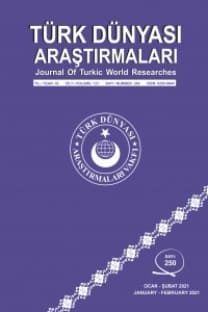Muharebe şartlarında ruh hâlleri
Bir askerin muharebe etme kabiliyeti duygusal durumuna yakından bağlıdır. Muharipten beklenen; düşmanı, tam bir profesyonellik içinde, ne sevimli bir insan ne de nefrete şâyan bir kötülük timsâli addetmeden sadece imha etmesidir. Korku, önüne geçilmesi gereken doğal bir histir. Bir toplumun geleneksel dünya görüşü, askerinin muharebe psikolojisini belirlemede önemli yer tutar. İyi eğitim dayanıklı ve kararlı bir ruhsal durum geliştirir. Savaş suçları esasen bozuk kişilik yapısından kaynaklanır. Harp psikozu, esasen Vietnam Harbinden bu yana tanınır bir kavram olmuştur.
Emotional states under battle conditions
A soldier s ability to fight a battle is deeply related to his emotional state. In battle, one is expected to merely destroy the enemy in a thoroug- hly professional manner, taking him neither as a sympathetic human be- ing nor a hated evil being. Fear is a natural feeling which must be subdu- ed. Traditional worldview of a given society is important in determining the battle psychology of the soldiers. Good training develops perseveran- ce and stable emotional structure. War crimes are essentially caused by disordered personality structure. War psychosis constitutes a concept which comes to recognition basically since the Vietnam War.
___
- Gavet, Andre, Komuta Etme Sanatı, (Çev. Kâzım Kırıkkanat, 1952, sâdeleştiren Ahmet Erüz), Kara Harp Okulu Basımevi, Ankara, 1996.
- Gıbney, Frank Jr., Tales of War From Vietnam, Time, 22 Mayıs 1995.
- Handy, Charles B., Understanding Organizations, Penguin Books, New York, 1978.
- Lang, Kurt, Military Sociology 1963-1969, Current Sociology / La Sociologie Contemporaine, Vol: XVI, No. 3, Mouton & Co., the Hague & Paris, 1970.
- Leriche, René, Plaies recents des articulations, ed.: C. Regaud, Leçons de chirurgie de guerre, Masson et cie Éditeurs, Paris, 1918.
- Military Professionalism 22-9-1, TRADOC, Washington, Mayıs 1986.
- Mocquet, Pierre, Amputations des membres, leur indications et leurs techniques generales dans les cas de blessures recentes, ed.: C. Regaud, Leçons de chirurgie de guerre, Masson et cie Éditeurs, Paris, 1918.
- Mukaddime, (İbn-i Haldundan) Haz. S. Uludağ, Dergâh Yayınları, İstanbul, 1988.
- Remarque, Erich Maria, à lOuest rien de nouveau (Traduit de lAllemand par Alzir Hella & Olivier Bournac), (roman) Stock, Paris, 1957, 1972.
- Sapersteın, Robert & Sapersteın, Dana, The Emotional Wounds of War, Military Review, Ocak 1992.
- Shils, Edward A. & Janowitz, Morris, Cohesion and Disintegration in the Wehrmacht in the World War Two, The Public Opinion Quarterly, Yaz 1948.
- ISSN: 0255-0644
- Başlangıç: 1979
- Yayıncı: Türk Dünyası Araştırmaları Vakfı
Sayıdaki Diğer Makaleler
Aba güreşi, geçmişi ve günümüze yansıması
Gökhan BAYRAKTAR, Nurtekin ERKMEN, Serkan T. AKA
Balkan savaşlarında Osmanlı devletinde havacılık faaliyetleri
Karabağ sorununa dair belgeler: CebrayıL Rayonu örneği
Türkçede artzamanlı sözvarlığı boyutuyla: Yok' ve çok' kelimeleri üzerine
Türk masal kahramanlarının yolculuktan olgunluğa değişim süreci
Türkçe ders kitaplarının değerler bağlamında tarihsel gelişimi
Büyük TÜrkmen Mahtumkulu'nun şiiri, şairliği (1730-1780)
Muharebe şartlarında ruh hâlleri
Emniyet genel müdürlüğü arşiv belgelerinde sürgündeki osmanlı hanedanı (1924-1931)
